‘Truth was the real take-away from Mueller’: RT America’s Sanchez tackles Russiagate (VIDEO)
So many countries meddle in US affairs – and the US meddles right back. Why did Russia become the exclusive boogieman; the bête noire of the US media’s road to nowhere? RT America host Rick Sanchez explains how Russophobia drives the biggest, most powerful industry in the world: US weapons.
Rick Sanchez has broken down the true lessons of the Robert Mueller probe and Russiagate, revealing why he believes Russia was pegged as the US’s “exclusive boogieman.”
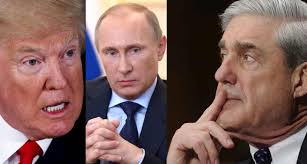
U.S. Pres. Trump, Russian leader Vladimir Putin, US Special AG Robert Mueller
On Thursday’s edition of ‘The News with Rick Sanchez’, the show’s host gave his unfiltered response to the Mueller report that aimed to finally put an end to the two-and-a-half-year-long anti-Russian hysteria in US politics and the mainstream media.
Sanchez claimed “truth was the real take-away” from the report, given that there was no evidence of Russian collusion and despite this lack of evidence, so many MSM journalists readily participated in Russiagate, leaving real stories untold in their pursuit of this “trail to nowhere.”
Instead, Sanchez explained that the “demonization of Russia” is used to drive the “most powerful industry in the history of the world” – US weapons.
“Using a complicit media, the arms industry rakes in billions and billions of dollars simply convincing us and other countries all over the world that they need protection from Russia,” said Sanchez. “Whether Russia really poses a threat or not doesn’t really matter.”

U.S. missile strikes Libya as part of joint invasion with NATO.
https://www.rt.com/usa/455101-rick-sanchez-response-mueller-probe/
ICYMI: MUELLER’S COLLUSION DELUSION: US MEDIA IS FURIOUS THEIR PRESIDENT ISN’T A RUSSIAN SPY
The dysfunction in American politics has reached the bizarre stage where there is visible anger that President Donald Trump didn’t collude with Russia to take the office.
Russiagate has been a fixture in the news for two years, where the media sold a story that it wasn’t a case of ‘if’ but ‘when’ Special Counsel Robert Mueller would find evidence to prove that Trump was Moscow’s man in the White House. Unfortunately, Mueller wasn’t playing ball and – having taken the unprecedented approach of considering facts and not wishful thinking – he concluded that there was no evidence of collusion to be found. So ICYMI looks at how America is dealing with the fact that Trump may have been elected because people thought he was the best option. Like what you see? Please subscribe: http://youtube.com/ICYMIvideo.
RUSSIAGATE HYSTERIA LIVES ON: ELECTION MEDDLING SANCTIONS BILL HAS ITS DAY IN THE SENATE

 April 3, 2019
April 3, 2019
Mueller may have had his day, but the specter of Russian meddling still hangs over Washington. A bill newly introduced in the Senate promises to slap harsh sanctions on Russia should future election interference be discovered.
The ‘Defending Elections from Threats by Establishing Redlines’ (DETER) Act is the latest attempt by US lawmakers to squeeze Russia for a range of perceived election-related offenses. Introduced on Wednesday by Chris Van Hollen (D-Maryland) and Marco Rubio (R-Florida), it would require the Director of National Intelligence to determine within 30 days after every federal election whether Russia or any foreign government attempted to interfere.
If the DNI were to find such interference, it would require sanctions to be imposed on a list of Russian banks and energy companies. It would also prohibit US citizens from engaging in business with any entity owned by the Russian government, and freeze the assets of Russian political and business leaders targeted for sanction in the US.
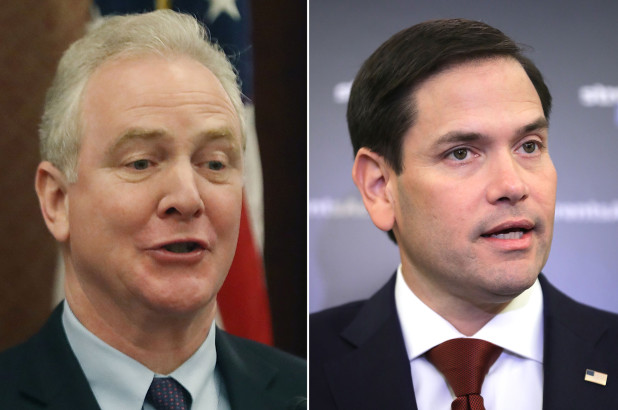
Chris Van Hollen and Marco Rubio
The bill’s text, seen by Reuters, appears to be a carbon copy of a bill introduced by Van Hollen and Rubio in January 2018. That iteration of the DETER Act never made it past introduction, and has languished in Congressional limbo ever since.
While the bill pays lip service to targeting election interference from “China, Iran, North Korea, and other foreign governments of concern,” its main focus is undoubtedly Russia.
Whatever form any potential interference takes, six Russian banks would be immediately blacklisted: Sberbank, VTB Bank, Gazprombank, Vnesheconombank, Bank of Moscow and Rosselkhozbank. Ditto for Russia’s energy sector: the act requires “two or more” of Russian energy firms Gazprom, Rosneft, and Lukoil to be sanctioned if interference is discovered.
Establishing what exactly constitutes ‘Russian interference’ is left up to the US intelligence agencies, reporting to the DNI.
Although the oft-repeated line is that “17 US intelligence agencies” found evidence of Russian interference in the 2016 election, only three of these agencies claimed to have noticed any foul play: the CIA, FBI and NSA. The DNI’s report, published in January 2017, was nevertheless characterized in the media as representing all 17 agencies.
After last year’s midterm e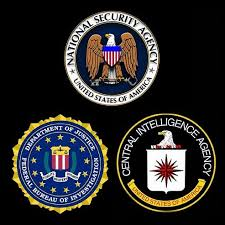 lections, Director of National Intelligence Dan Coats issued a report concluding that “Russia, and other foreign countries, including China and Iran, conducted influence activities and messaging campaigns,” but were unsuccessful in influencing the vote. Coats’ report did not provide details of these “messaging campaigns.”
lections, Director of National Intelligence Dan Coats issued a report concluding that “Russia, and other foreign countries, including China and Iran, conducted influence activities and messaging campaigns,” but were unsuccessful in influencing the vote. Coats’ report did not provide details of these “messaging campaigns.”
Sanctions are a favorite tool in the US diplomatic arsenal, but their effectiveness has been questioned. Russia has one of the world’s lowest debt to GDP ratios (somewhere around 13 percent), and has for years been selling off US bonds and stockpiling gold. In his state of the nation speech in February, Putin declared that Russia now has enough cash in its reserves to cover all of its external debt.
Think your friends would be interested? Share this story!
LEFT OPT FOR ELECTION SCAREMONGERING? REPORT CLAIMS ‘US DARK MONEY’ MEDDLING IN EUROPE
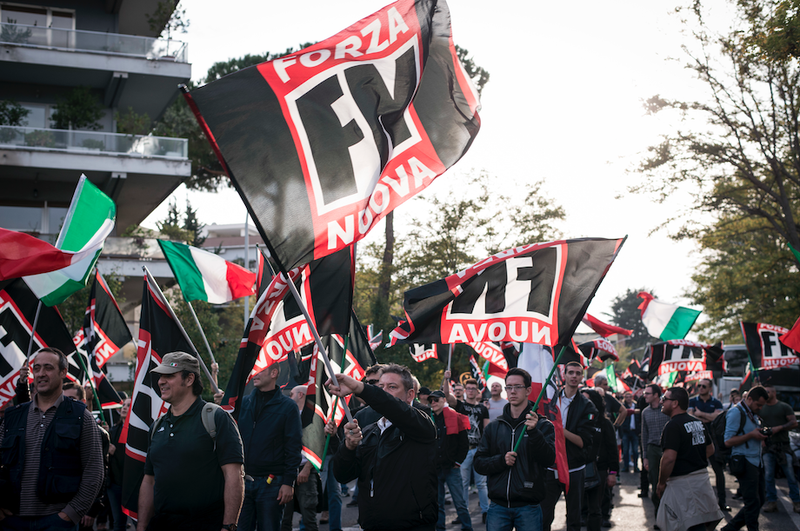
FAR RIGHT PROTESTERS IN EUROPE
March 29, 2019
A new alarming report claims American Christian conservative groups funneled millions to fund “shocking” meddling in European politics. Seems like a big scoop, or just a ploy to sway European Parliament elections?
The report released by the UK-based political website openDemocracy this week spares no black paint to produce a picture of gross interference in European affairs. The perpetrators are conservative Christian charities, which, the records show, pumped at least $50 million into European countries.
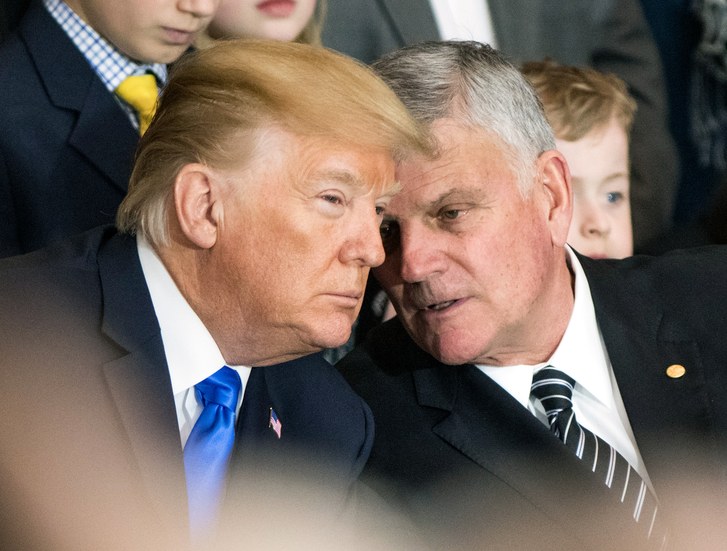
U.S. Pres. Trump and right-wing evangelist Franklin Graham
All the right names that can scare a left-leaning reader are duly mentioned. Donald Trump? Check. Vladimir Putin? Check. Steve Bannon? Check, three times. Also listed are billionaire brothers Charles and David Koch, the DeVos family, including Blackwater founder Erik Prince, and the evangelical preacher Franklin Graham – who notably travelled to Russia earlier this month, the report stressed for some arcane reason.
Of course the US public records over the past decade, which openDemocracy used as the source for the figure, don’t identify the recipients. But the readers may well assume that they had the most nefarious goals in mind.
“The scale of this meddling by US extremists is shocking, but sadly no surprise to us. Every day European societies face concerted attacks by outside forces seeking to impose reproductive coercion,” commented Caroline Hickson, regional director of the International Planned Parenthood Federation’s European Network. “This is utterly at odds with the European values of democracy and human rights.”
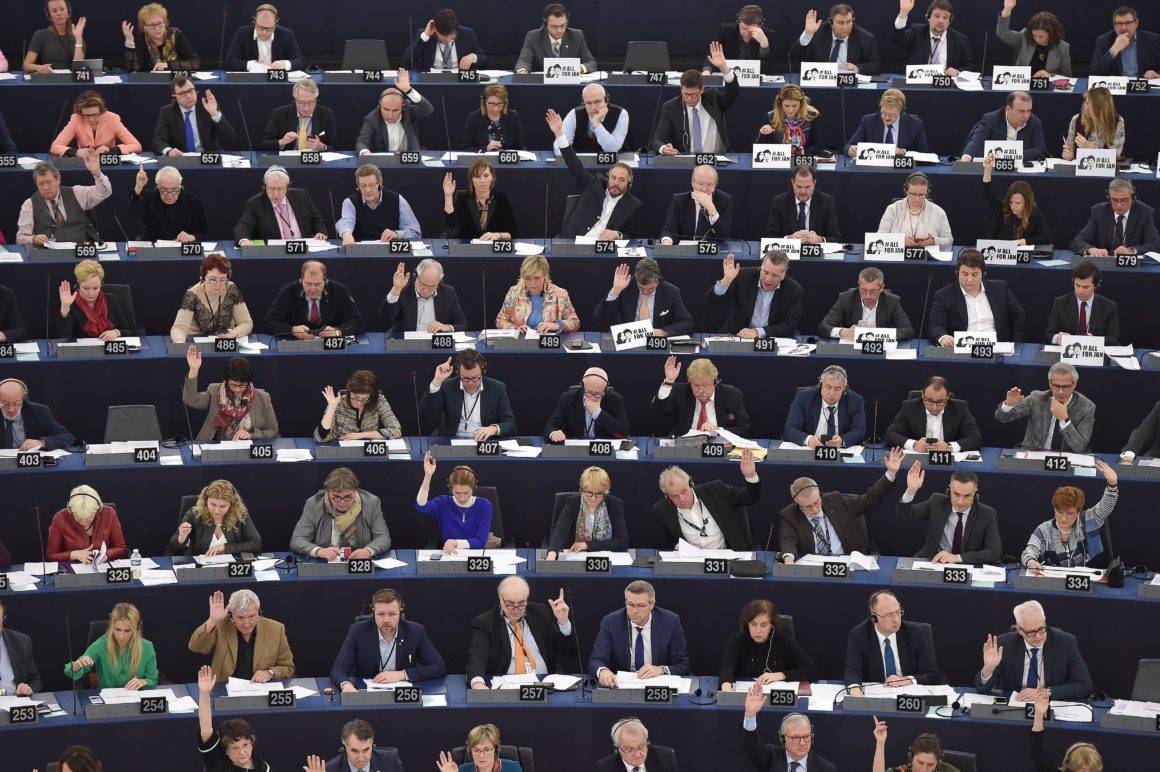
Members of the European Parliament take part in a voting session at the European Parliament on March 14, 2018 in Strasbourg, eastern France. / FREDERICK FLORIN/AFP/Getty Images)
The authors make no secret that they compiled their work ahead of the European Parliament elections, which will be held throughout EU member states in late May. Right-wing and Eurosceptic parties are widely expected to score big wins at the ballot. Some 40 incumbent MEPs penned a letter calling for action to investigate “US Christian fundamentalists” and their influence on Europe.
The report seems to be an exercise in scaremongering, painting private donations made by a conservative foundation as something untoward, John Laughland, British conservative author and historian, told RT.
“Some of the organizations that they mention I personally know. This is just ridiculous. There are MEPs and European political parties that receive money from American sources, including liberals,” he said.
The notion of ‘dark money’ being used to ‘interfere’ in European affairs has been around in some political circles for quite some time. The only difference with this report is that the parties accused of interfering are private charities rather than a foreign nation like Russia, the most popular target for such accusations in the past few years.
Perceiving ‘dark money’ behind political opponents is a kind of conspiratorial thinking that some people in the left-wing camp demonstrate, Laughland added. “They think that any kind of movement or current of ideas that is not their current of ideas is either because people are stupid or because they are paid,” he said.
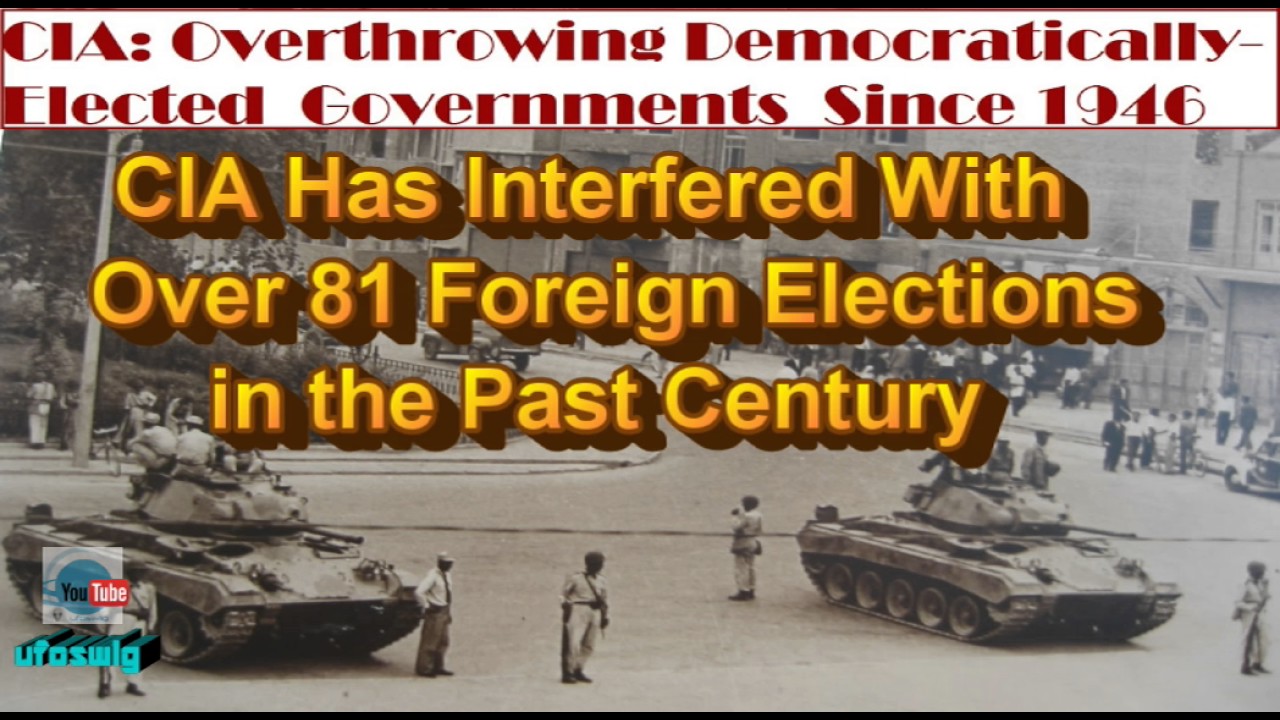 The complaints about “Russian election interference” made by the EU and the US, which have a long record of their own meddling in foreign nations, looks like a vivid example of pot calling kettle black, he said. The left complaining about the right receiving foreign money while receiving foreign money themselves would look similarly hypocritical.
The complaints about “Russian election interference” made by the EU and the US, which have a long record of their own meddling in foreign nations, looks like a vivid example of pot calling kettle black, he said. The left complaining about the right receiving foreign money while receiving foreign money themselves would look similarly hypocritical.
British Journalist Neil Clark, pointed out that while $50 million may seem like a large sum of money even spent over ten years, it dwarfs compared to the billions and billions floating around in European politics. A significant portion of that money goes to liberal causes funded by wealthy sponsors like Hungarian-born billionaire George Soros, the best-known person of that ilk.
The impact that his Open Society Foundations made on Europe, especially in the eastern part during post-Soviet transition, is undeniable. Incidentally, the foundation is one of the primary sponsors of openDemocracy itself, alongside US-based groups like National Endowment for Democracy, and the Ford Foundation.
Clark warned against piling up a dozen Christian conservative groups into one vaguely neo-Nazi-shaped boogeyman, which is what the report seems to have done. More so, if the goal was to turn it into a campaigning point for the May elections.
“The issue that the left should be fighting on is economic. Employment, rising poverty in Europe, austerity – these are the issues they should be focusing on, and not culture wars,” he told RT. “And this report to me seems as if it wants to encourage culture wars… Basically, Steve Bannon versus George Soros.”




